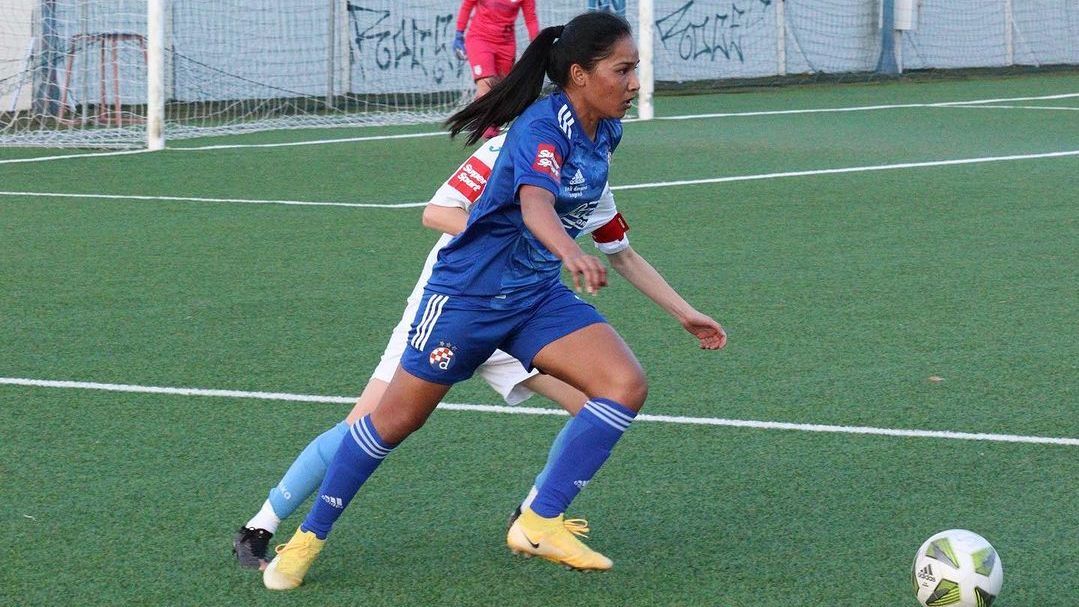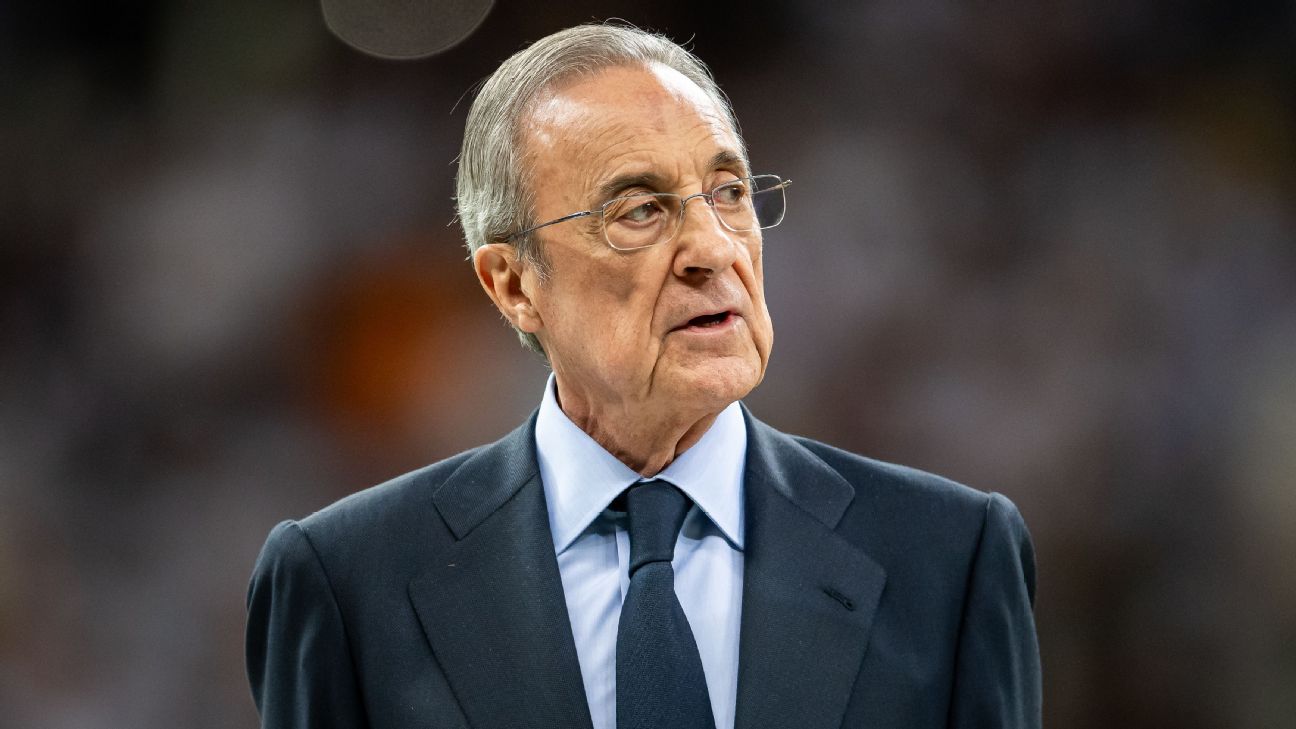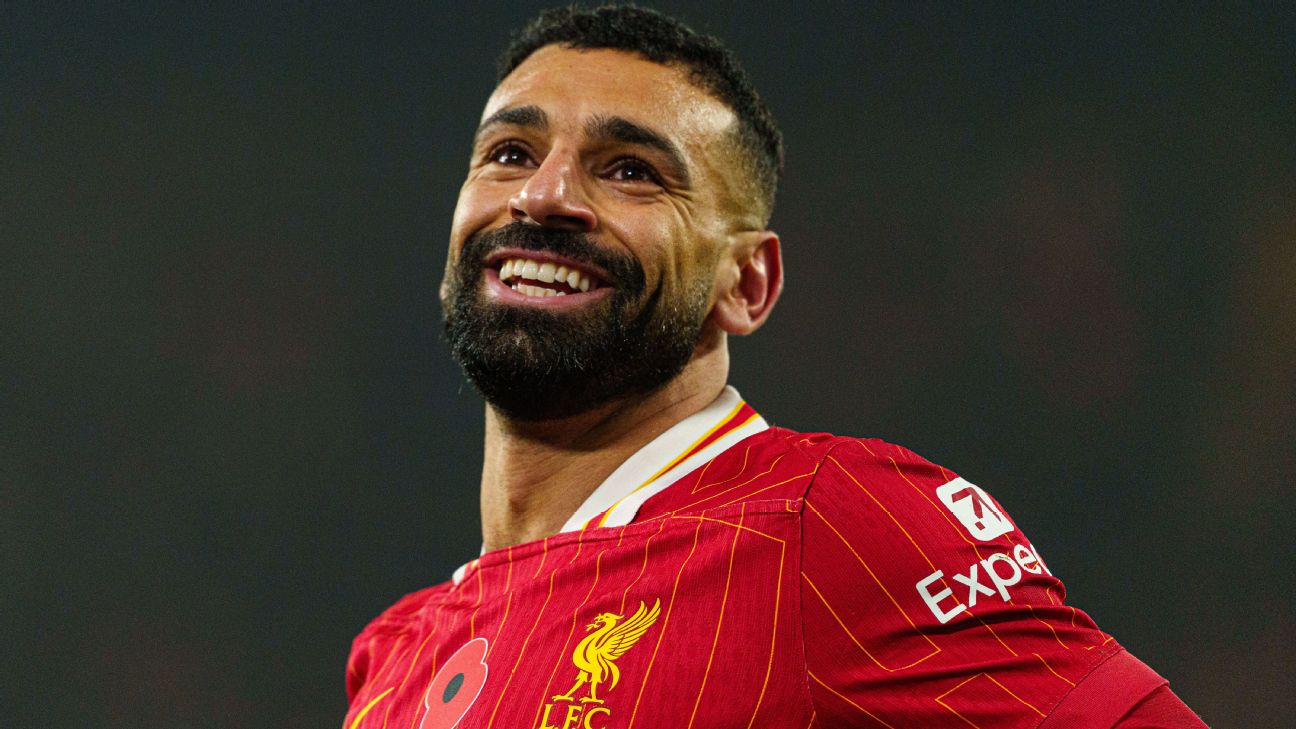Goal 1: Running onto a rebound from her shot, toe-poking it away from the nearest defender, throwing a fake to make the goalkeeper go to ground, before rounding her and passing it into the empty net.
Goal 2: Running onto a knock-on from a long goal kick, outpacing her marker, and calmly slotting it underneath the keeper.
Goal 3: On the run, lifting a cross with the outside of the back of her right foot, and then smashing a stunning volley off that lob (from an impossible angle) into the roof of the net.
Just by itself, this sounds like a cracking hat trick, doesn’t it? What makes it properly special, though, is that it was scored by an Indian, in Europe. Wait, an Indian footballer scoring a hat trick in a European first-division league?
Say hello to Jyoti Chouhan of Sardapur, Madhya Pradesh and HNK Dinamo Zagreb.
She had done this last season, along with becoming the first Indian to score in a European Cup final that season, and her reward has been a debut call-up to the India squad, this one going to the Asian Games.
What makes it all so fascinating is that Jyoti really oughtn’t have been a footballer in the first place. Growing up – like most women athletes in the nation – the odds were stacked against her.
For one, when she started, none of the girls in her area or her school played the sport. “There was a football ground right behind my house and only boys used to play there. When I started playing football, I used to play with them only, but I got really invested around 4th standard. I liked how the collective worked in the game. So when I got into 5th standard, I convinced the girls in my school, including my sisters Deepika and Payal, and even my cousins to come play so that we could form a school team.”
She may only have got her first pair of boots thanks to the boys team having a surplus, but the small matter of ill-fitting boots wasn’t going to stop her. Her drive soon led that team to be the best in the state. She played in age-group nationals when she was in the 6th standard and all was going well until when her father died a year later.
Even when he was alive, there had been pressure from her extended family to get Jyoti and her sisters to stop playing. That pressure increased manifold later.
“There was even more pressure on mummy,” she says. “Everyone asked her to stop us from playing.” The logic they put forward is something most girl athletes hear as they’re coming up: “They would tell her, ‘Anyway they have to get married off only, what will you get from football.'”
Her mother, though, remained firm. “After papa passed away, mummy did everything,” she says. “So, I gave my all to football. That’s all I had in my head, that I must do well… and silence everyone else.”
And so, she went from the age-group state team to the senior team to professional clubs and now to the national team. It took a chance meeting with a well-wisher for her to learn about club football and how it all works, and she soon moved to Kenkre, and then Mumbai Knights (both Mumbai-based clubs). She played so well there that the Indian women’s football’s juggernaut, Gokulam Kerala, came calling.
Never exhausted ��
�� Jyoti Chouhan #Malabarians #GKFC #GKFCWomen pic.twitter.com/sBGbintJUs
– Gokulam Kerala FC (@GokulamKeralaFC) October 6, 2021
After a superb season with them, Jyoti gave a trial (organized by Women in Sports Forum in association with the AMPL Foundation & Football Players’ Association of India) and was picked by Dinamo Zagreb. Her form there was so unignorable that the Indian squad call-up was but a formality.
If that’s not a measure of the pure steel in her character… “These days when talk of marriage crops up at home,” she says with a big laugh, “Those same people who used to want me to stop say ‘Jyoti ko to khelne do, jab unka mann hoga karegi.’ (Let Jyoti play, she’ll marry when she wants to).”
Jyoti, who had been training in Zagreb with the team since August 11, is one of only two players (Manisha Kalyan, across at Cyprus, being the other) who have been actively playing competitive football in the 22-player Indian squad for the Asian Games. For the others, the month-long Indian Women’s League and another month-long competition, the National Championships, remain the only tournaments they take part in.
For Jyoti, this difference in change of culture had been stark initially. “When I first trained here, I felt horribly unfit, it was pretty difficult [to adjust to the increased intensity],” she says. “There’s five days of training, one day rest and the other day a match.”
“But I adjusted within a month: what helped was that I was able to hold my own on the field, in my first practice match itself. So, I figured if you could stick around with them and train harder with them, I can score lots of goals and do well.”
Her exploits, as well as Manisha’s (who became the first Indian to score in the UEFA Champions League just last week), are proof of the talent in Indian women’s football. The senior statesman of the squad, Bala Devi, recently of Rangers in Scotland, would agree too. They are all now used to the European style of play, which Jyoti explains, “They play on the ground, never an air ball. From defence itself it’s pass-out-of-the-back. No one just hoicks it clear.”
It’s also the little things…as a forward, Jyoti gets no time on the ball (“they are on me before I even get the ball”) so quick decision-making is vital. Manisha and Bala have both spoken about this before.
It’s a standard of football they’ll look to replicate with a women’s squad that’s packed with talents who are very much capable of this. So even though India are drawn in a very tough group, alongside higher ranked teams in Thailand and Chinese Taipei, there’s hope.
For, as Jyoti has shown throughout her career, this is a team filled with individuals who have made a living off punching upwards, breaking ceilings, and upsetting the odds. Jyoti, and her 21 teammates, will be raring to go come September 21.



